6 milk scandals of the world
(Baonghean.vn) - Milk can be considered an essential commodity for consumers. Therefore, events related to the safety of this commodity are always of great interest to the public. Not only in Vietnam, scandals about the safety and quality of milk still occur all over the world. Let's review some recent incidents to see the problems that dairy companies face as well as their solutions.
1.Melamine-tainted milk in China.
In 2008, melamine-tainted milk was considered China's worst scandal in years. Nearly 300,000 children were affected, 860 were hospitalized, and six deaths were linked to the use of these products.
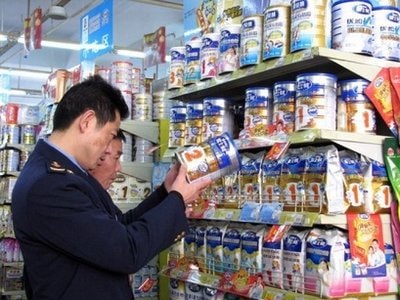 |
| In 2010, Chinese authorities seized several batches of contaminated milk from 2008. |
Melamine is a chemical added to low-quality milk to increase its nutritional content so it can pass inspection. Melamine can cause urinary problems and kidney stones.
A list of 22 companies involved in the case was released, including four well-known companies: Sanlu, Mengniu, Yili and Yashili.
Most of the companies involved responded quickly, issuing apologies and recalling products.
The scandal has prompted many countries in Asia to inspect and recall dairy products from China.
Meanwhile, the EU has issued a ban on baby food originating from China and the US has warned against importing milk from the country.
In addition to seriously affecting the health of consumers and the Chinese food market, the incident also caused public outrage because of the cover-up by Sanlu Company (Tam Loc) several months before notifying the Hebei provincial government.
A total of 18 people have been arrested in connection with the incident, which has prompted a government overhaul to improve safety in the dairy industry.
2. Milk contaminated with carcinogens from China.
In 2011, China's Mengniu Group (MDC) faced a scandal over its dairy products after milk was contaminated with melamine.
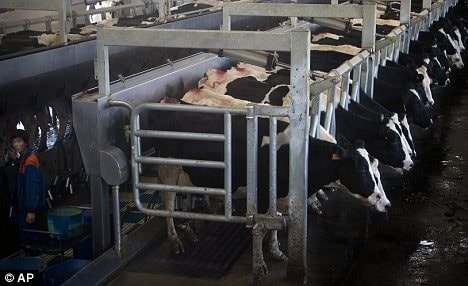 |
| Rotting cow feed is believed to be the cause of toxins in milk. Photo: Dailymail |
While aflatoxin was found to be a carcinogen, this time the corporation detected it early before the products were marketed and destroyed them.
Despite the apology and assurances that the product quality meets standards, some critics on social media have criticized the corporation and the safety of domestic Chinese dairy products.
It is known that the cause of the poison appearing in milk comes from rotten food provided to cows.
3. Insects found in Abbott milk
In 2010, Abbott recalled its top-selling product, Similac formula, after beetles were found in the milk cartons.
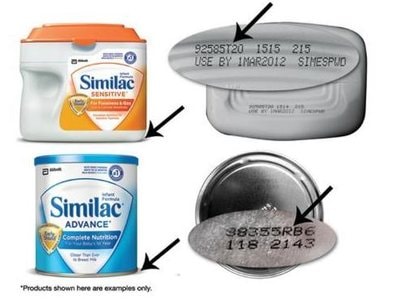 |
| Several Similac products were recalled due to insect contamination. Photo: NPR |
The recall, which cost the company $100 million in lost revenue, stemmed from reports from two customers.
While the investigation into the incident at the Michigan plant (USA) is underway, the corporation has recalled nearly 5 million Similac products in the United States, Guam, Peru and other markets in the Caribbean.
Abbott quoted the US Food and Drug Administration as saying that formula containing beetles does not pose an immediate health risk but can cause digestive discomfort or loss of appetite in children.
4.Contaminated milk powder exported from New Zealand.
In August 2013, the world's largest milk exporting corporation, Fonterra, based in New Zealand, announced that its milk contained a type of bacteria called Clostridium botulinum that causes poisoning, nausea, diarrhea, paralysis, and even death.
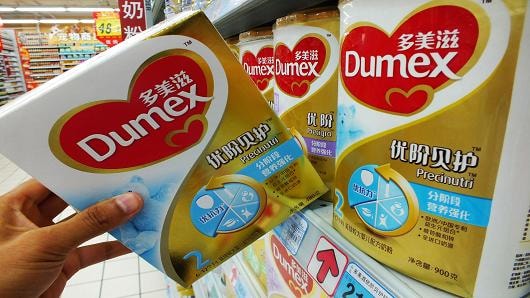 |
| Dumex infant formula, using raw materials from Fonterra. Photo: CNBC |
Shortly after New Zealand recalled infant formula, China announced it would stop importing all powdered milk products from Australia and New Zealand.
Several other countries that import products from this corporation, such as Vietnam, Russia and Thailand, have also recalled their products.
With the incident's huge impact on the reputation of New Zealand's important dairy industry, the country's government launched an investigation into the incident but came to a conclusion different from the initial statements of the Fonterra group.
Tests by the country's authorities showed that Fonterra's milk products contained clostridium sporogenes, which cannot cause poisoning, but at high concentrations can cause food spoilage. Although the conclusion showed that the product's ability to cause poisoning was eliminated and Fonterra was highly vigilant for consumer safety, the incident still had a significant impact on the New Zealand dairy industry.
Therefore, after this event, Fonterra Group was fined 300 thousand USD for damaging the reputation of the country's milk industry as well as losing market share in many countries.
5. Contaminated milk in Hong Kong.
In May 2013, Hong Kong requested a recall of an Australian low-fat milk product after routine testing found bacteria levels exceeding permissible levels.
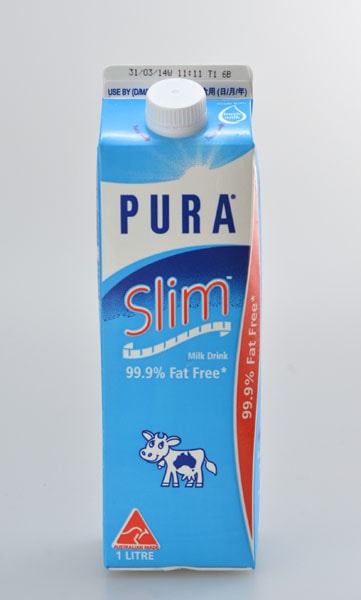 |
| Purs Slim milk was recalled due to exceeding the allowable amount of bacteria. Photo: news.gov.hk |
The Hong Kong Center for Food Safety (CFS) has requested a product recall from the market and stopped the import of Pura Slim milk from Australia, which contains up to 30 million bacteria/ml, 10 times the allowable amount.
"The test results showed that the total bacterial count exceeded the prescribed level, indicating unsanitary conditions, but it does not mean that this can lead to food poisoning," said a representative of the Hong Kong Center for Food Safety.
6. Listeria contaminated milk in Canada.
Most recently, in early June 2016, one of the world's top 10 dairy companies, Saputo, recalled Neilson semi-skimmed chocolate milk products in Ontario and Quebec, Canada due to Listeria monocytogenes contamination.
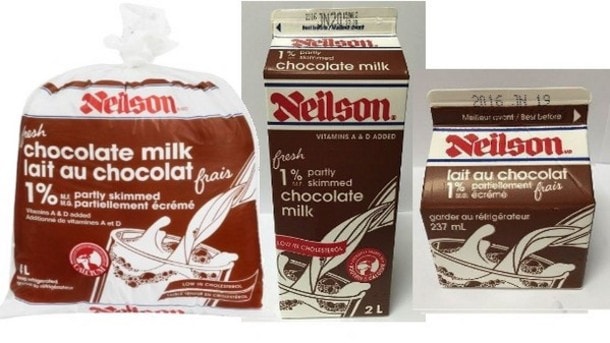 |
| Several Neilson semi-skimmed chocolate milk products have been recalled. Photo: Dairyreporter.com |
The first recall was implemented on June 4, consumers are advised not to use the products on the recall list and can return the products to the place of purchase and receive a refund.
Contaminated milk can be recognized by sight or smell, but can still cause illness in humans such as vomiting, fever, muscle pain, headache, stiff neck, and in severe cases can cause death.
The Canadian Food Inspection Agency (CFIA) is investigating the link between some illnesses and the use of recalled milk products./.
Phan Hoang Vu
| RELATED NEWS |
|---|




.jpg)



